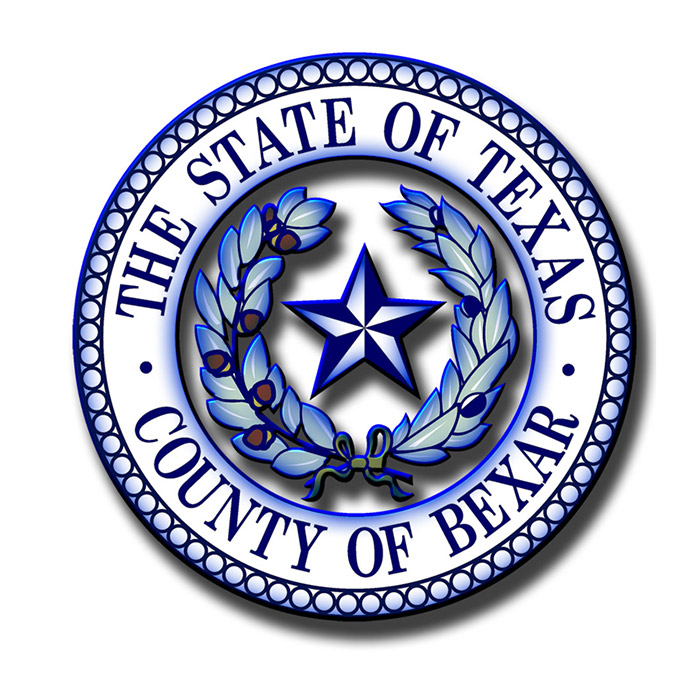Bexar County Property Tax

Property tax in Bexar County, Texas has a similar tax rate as other counties in Texas. However, trying to calculate property tax can be confusing. It’s also important to know the deadlines for applying for exemptions or protesting increases in property value. Here are some of the top things you need to know about property taxes in Bexar County.
5 Things Investors and Homeowners Need to Know About Bexar County Property Tax
- How Property Tax is Calculated
- Tax Rates in Bexar County
- When Property Taxes are Due
- How to Pay Property Taxes
- Ways to Lower Tax Liability
With a population of 1,986,049 as of 2018, Bexar County is the 17th largest county in the United States, just after Tarrant County, Texas. Bexar County encompasses the city of San Antonio with a total area of 1,256 square miles. The City of San Antonio is the 2nd largest city in Texas with a population of 1,520,881—which is most of Bexar County. Other major cities include Alamo Heights, Castle Hills, Balcones Heights, and Converse. The county also has 14 colleges, including Texas A&M University (San Antonio), Trinity University, and the University of Texas San Antonio. The annual property tax assessment roll is over $155,652,228,052 or roughly $156 billion. Of that, over $4 billion is collected as property tax revenue. This revenue goes to fund countywide services and activities as well as to fund roughly 55 taxing units in Bexar County.
1. How Property Tax is Calculated
Property tax in Texas is calculated in much the same way between counties. In the state of Texas, there is no state property tax. Instead, local agencies are responsible for appraising the value of property in their counties. This can include real estate, as well as personal property, to various degrees. Those who operate a business may also be subject to property taxes on both real estate and some business assets.
The Bexar County Appraisal District (CAD) and a tax assessor are responsible for assessing the fair market value of property in Bexar County. This appraisal district is also responsible for applying changes in value, exemptions, and credits that adjust the taxable value of a property. Taxpayers are given a limited amount of time each year to protest the appraised value of their residence. If the market value has been overstated compared to nearby properties, you may be able to appeal for a lower taxable value.
After the market value is set by the County Appraisal District (CAD), the data is compiled into a property tax assessment roll which is forwarded to the county’s local taxing units. These taxing units include important agencies, such as Independent School Districts (ISDs), Municipal Utility Districts (MUDs), Community Health Services, Flood Control, and other county units. Bexar County has 55 taxing units, each with jurisdiction over various parts of the county.
2. Tax Rates in Bexar County
Each taxing authority in Bexar County determines its budget for the year. As the county grows and new needs arise, the tax rates of a given taxing unit may be impacted. Demand for public services, community upkeep, schools, and tax rates inevitably increase as well. Texas has experienced rapid growth in many areas, which has called for increased public spending. However, there is no income tax or property tax levied by the State of Texas. As a result, there is an increased draw on income from property tax and real estate taxes.
Property in Bexar County Texas is divided into individual pieces of land called “parcels” for property tax records. The County Appraisal District (CAD) in Bexar assesses the value of taxable property and keeps this on the property tax assessment roll. Taxing units, such as schools, community colleges, universities, libraries, and emergency services are provided by taxing agencies in the county. These agencies determine the property tax rate based on the total market value of taxable property in the county and the expected budget.
School district taxes make up most of the ad valorem taxes from a given county. Public organizations that must raise money may also agree to take on debt, though voter approval is required, in most cases. If tax rates are increased too severely compared to previous years, this may require a vote in an election held by the county. A single parcel of land may fall into multiple tax jurisdictions, which can lead to a single parcel of land being subject to many different taxing units.
3. When Property Taxes are Due
The property tax roll year starts on January 1st. The Bexar County Appraisal District assesses the value of property in the county and also applies eligible exemptions and credits. Taxpayers must submit the appropriate documents to the County Appraisal District in order to take advantage of exemptions or credits for their residence or other property. Taxpayers who believe the assessed value has increased too much can protest the assessment with the Bexar Appraisal Review Board.
Each October, property owners receive a property tax statement. Owners are responsible for paying property taxes by the due dates, even if they did not receive the tax bill or it got lost in the mail. Property taxes are due by January 31st of the following year unless a payment plan has been arranged. Failure to pay by the deadline can result in fees and a tax lien, so it is important to pay property tax bills as soon as possible. Prior year taxes that are delinquent can have hefty penalties and interest applied. For more information about how to start a property tax appeal or to seek property tax relief, consult with an experienced tax attorney today.
4. How to Pay Property Taxes
There are many ways to pay property taxes in Bexar County. You could visit a local tax office, but it is far more convenient to pay online using a credit card or using eCheck to pay directly from a bank account. Credit card payments are processed through JetPay, which charges a 2.10% convenience fee. Paying with an electronic check or eCheck requires your bank checking account number and bank routing number. You could also call the Office of the County Tax Assessor-Collector and make a payment over the phone.
The tax will be assessed against the owner of record on January 1st. Changes in ownership that occur before or after this date can impact who will receive the tax bill. Additional tax charges can be assessed and summarized in supplemental tax bills. It is important to note that some mortgage companies will handle normal property tax payments but may not cover supplemental tax bills. Be sure to check with your mortgage company to ensure there are no missed payments. Depending on your situation, if you cannot make the entire payment, the county may allow you to set up a payment arrangement. Before you do this, it may be a good idea to consult a lawyer to make sure you are actually getting the best deal possible.
5. Ways to Lower Tax Liability
There are many ways for you or your spouse to lower your property tax liability in Bexar County. The first step is to apply for any exemptions and credits you are eligible to receive. Depending on the property type and usage, you may qualify for additional tax savings as well in your district. For example, the Homestead Exemption can give you an exemption worth $25,000 if the property is your primary residence. However, this exemption cannot be claimed in the first year the house is owned.
Keep in mind that there are several tax rules that can cause your application to be delayed or not be applied to the current tax year. Working with a professional tax lawyer can greatly expedite the process and help maximize your savings. Other exemptions, such as for those taxpayers over age 65, allow some property owners to claim a homeowner’s exemption without waiting for a full year, and may even be able to transfer to a similar house while keeping the same tax rates across cooperating jurisdictions. Property owners who are disabled can claim additional exemptions. If you are a disabled veteran, you can also claim significant exemptions.
Businesses can avoid property tax on business assets if they are only in the area temporarily. This is called the Freeport Exemption. Some property may qualify for a Historic Site designation and receive additional tax exemptions. After applying for any exemptions or credits, see if you have a valid basis to protest the increase in property value over the previous years. In the unfortunate case that your property has suffered damage from certain causes, you may be able to temporarily reduce the value of your home to reflect this loss in value. There may be additional property tax exemptions that offer tax savings, such as a surviving spouse exemption. Talk to the experts at Anderson Advisors to learn more about lowering your tax liability.
How Does Bexar County Compare to Other Cities in Texas and the United States?
With a market value of roughly $156 billion worth of taxable property, Bexar County is roughly half the size of Dallas County, which has a market value of $292 billion. In comparison, Harris County is nearly twice the size of Dallas County, with a market value of $574 billion.
It is important to note that Texas does not have a state income tax or property tax. Instead, the individual taxing units of each district determine the tax rate in conjunction with the assessed value of taxable property. There is also no capital gains tax on residences in Texas, which are taxes due on the profit made from selling an investment, such as real estate or stocks. If you are flipping houses, this lack of capital gains tax can save you quite a bit of money. While Texas may appear to be a higher tax state due to the higher property taxes, the lack of other taxes more than make up the difference.
Property tax is similarly complicated in other states, such as New Jersey and California. On top of income tax and property tax, investors and home sellers in these states must also account for capital gains taxes. Depending on the investment, you may be able to obtain a better tax rate if you hold the property for over a year.
Bexar County Property Tax
Bexar County is located in Texas, encompassing the City of San Antonio and surrounding areas. With a population of almost 2 million, this is the 17th largest county in the United States. San Antonio is home to most Bexar County residents, with a population of 1.5 million living in the city. Other major cities in Bexar County include Alamo Heights, Castle Hills, and Converse.
There is no property tax or income tax assessed by the State of Texas. However, local county appraisal districts are responsible for assessing property value and applying any credits or exemptions. Investors and homeowners who want to lower their property tax bill should first attempt protesting their appraised value from the Bexar appraisal district. This is done through the Appraisal Review Board. To protest your tax bill successfully, the assistance of a professional advisor may be required.
Property values are then sent to the 55 taxing units of Bexar County, which look at their budgets and determine a property tax rate that will help them collect enough revenue to operate. If taxes are raised too high in a given year, it may trigger an election that gives taxpayers a chance to vote for the tax increases.
For those who have already been assessed property tax but are having trouble making payments, keep in mind that there are payment arrangement options. You can also seek the aid of an experienced professional tax attorney who may be able to help lower your overall tax liabilities. Consult with an expert at Anderson Advisors for more information on how you can lower your taxable rate.
As always, take advantage of our free educational content and every other Tuesday we have Toby’s Tax Tuesday, a great educational series. Our Structure Implementation Series answers your questions about how to structure your business entities to protect you and your assets.
Additional Resources:
- Claim your FREE Strategy Session, and learn how Anderson Advisors can protect your assets.
- Join our next Tax & Asset Protection event to learn more advanced tax minimization & entity structuring strategies
- For all things investing, check out the Infinity Investing YouTube channel
- Subscribe to our YouTube channel to make sure you never miss the latest strategies & updates
Free Strategy Session with an Anderson Advisor
Receive a detailed risk assessment to assist in lowering problem areas that could wipe out all of your assets with one wrong move. Speak with an Anderson Professional Advisor to get your FREE Strategy Session.
Limited-Time Offer: ($750 value.)


